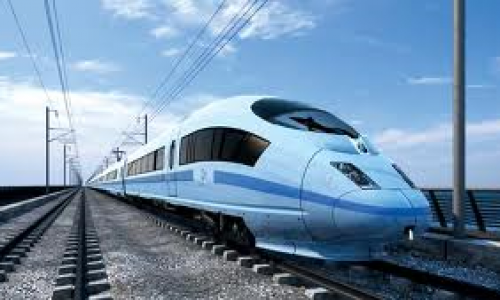
Lords let off steam over ‘seriously deficient and unconvincing’ HS2 business case
The Government case for building HS2 is “seriously deficient” and relies on out of date and unconvincing evidence, the House of Lords Economic Affairs Committee has declared.
In an embarrassing blow to Transport Secretary Patrick McLoughlin, the committee concluded its investigation into the high speed rail project with an attack on all fronts.
The committee also demanded that the 400 kilometre per hour maximum speed of HS2 should be cut to 320 kilometres, the same as the French TGV system, to save money on construction costs.
The first phase of HS2, from London to Birmingham, is due to open in 2026.
With a terminus station planned at Curzon Street in the city centre and an interchange station at the NEC/Birmingham Airport, the economic impact of HS2 on the West Midlands is forecast by the Greater Birmingham and Solihull LEP to be considerable with the creation of thousands of jobs and a huge uplift in GVA.
Phase two of HS2 will follow in a Y-shaped route connecting Birmingham International station to Manchester and Leeds.
Members of the Lords’ committee said they weren’t convinced by the Department for Transport’s financial forecasts and neither did they accept that HS2 was the only feasible way to increase capacity on the existing rail network. The report concluded:
The Government’s principal justification for building HS2 is to provide capacity to meet long-term rail demand. Inadequate information on rail usage and demand modelling makes it difficult to determine whether this is correct. Overcrowding appears to be caused by commuter traffic, not long-distance traffic, and is exacerbated by inflexible pricing.
It is impossible to agree with the Government that HS2 is the only solution to increase capacity on the rail network. Additional capacity could be provided by incremental improvements to the existing network, a new conventional railway line, or a new high-speed line (of which HS2 is only one option). These options have not been assessed equally, with only HS2 receiving serious consideration by the Government.
The peers said they did not believe the Government had shown that HS2 was the best way of stimulating economic growth in the country. “While investment outside London is long overdue, evidence and experience from other countries has suggested that London would be the biggest beneficiary of a project such as HS2.”
The Department for Transport’s cost-benefit analysis came in for harsh criticism.
HS2 is an expensive project. The construction of the railway and purchase of rolling stock is estimated to cost up to £50 billion at 2011 prices, including contingency.
The net cost to the taxpayer is expected to be £31.5 billion at 2011 prices over 60 years. If complementary projects to connect HS2 to existing transport networks are taken into account, the final cost would be even higher.
The cost-benefit analysis for HS2 relies on evidence that is out-of-date and unconvincing. The Government needs to provide fresh, compelling evidence that HS2 will deliver the benefits it claims.
We welcome the objectives the Government has set. We fully support investment in UK rail infrastructure. But the Government has not made a convincing case for why this particular project should go ahead. The analysis presented to justify the project is seriously deficient.
The committee pointed out that ministers had failed to consider how spending £50 billion on HS2 might be used on other transport projects and the benefits that might flow from a different approach.
If a new railway is required, the costs could be reduced, for example by constructing it to run at a slower speed—at the same speed as the French TGV—and by reducing the cost of construction closer to French levels.
The expected cost of construction per mile of HS2 is up to nine times higher than the cost of constructing high speed lines in France. This is too high.
The Government should review opportunities to reduce the cost of constructing HS2 through a change in the design of the scheme to one with a lower maximum speed—such as that used on continental railways—and publish the results of this exercise. This should include an assessment of the effect a lower speed would have on journey times, which is likely to be small.
Concern was also expressed about the difficulties of building the railway.
We are concerned to learn that the UK construction industry does not have the capability to deliver a project of the scale of HS2. A national transport strategy that envisages steady investment in the UK’s transport infrastructure, whatever the project, may help the UK develop a construction industry capable of delivering large infrastructure projects and competing internationally.
Similar Articles
Who can beat the Street? 0
You could be forgiven for not realising we are in the foothills of the very
Mayoral Mayhem? A challenging year begins…
The Board of the West Midlands Combined Authority (WMCA) meets this morning for the first
Council: Panel stands down, but recommends another one pop up
The Panel set up to oversee improvements to Birmingham city council has disbanded itself and
Brexit Watch: The List
We are living though extraordinary political times. The only thing to do in such circumstances
Birmingham City Council – a beacon (yes, you read that correctly)
They’re a tricky business, industrial relations, and I normally steer well clear. However, when the










